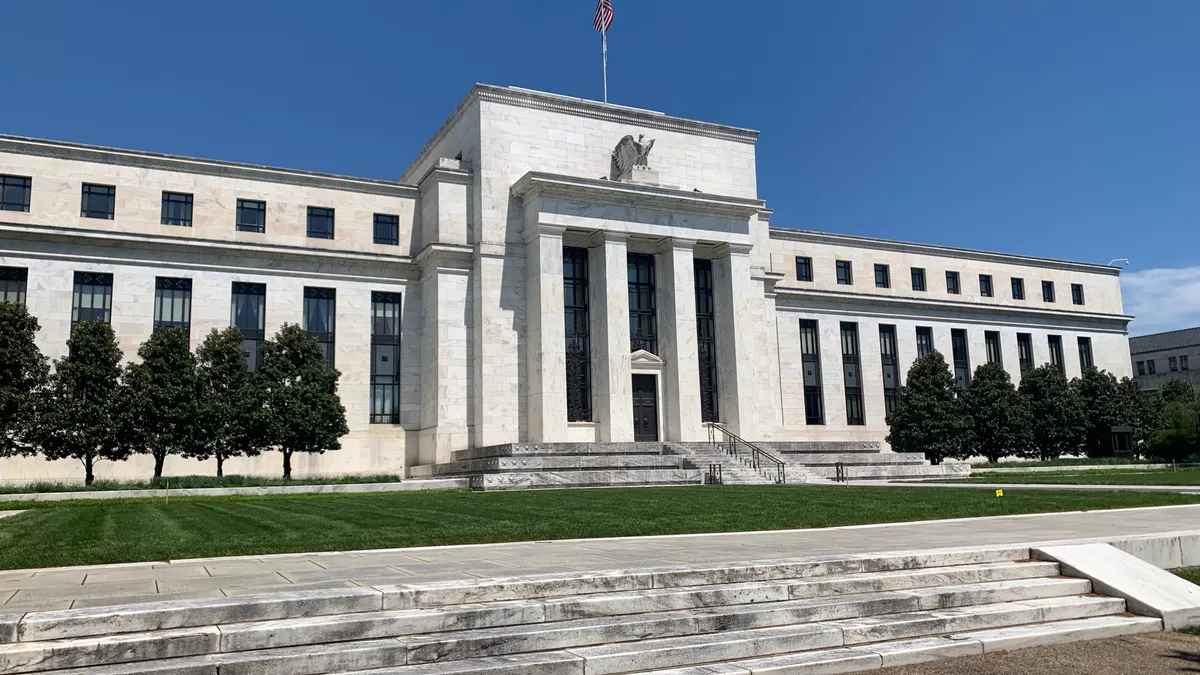Custodia Bank said it will continue its fight against the Federal Reserve and the Federal Reserve Bank of Kansas City, following the two institutions’ decisions last month to deny the bank access to the Federal Reserve System and a master account.
In an amended complaint filed Friday, Custodia claims the Fed and the Kansas City Fed lack the authority to deny the bank’s master account application, and accused the Federal Reserve Board of orchestrating the bank’s master account rejection.
“The denial of Custodia's master account application was done at the direction of the [Federal Reserve] Board," the Cheyenne, Wyoming-based bank wrote in the complaint.
The language in the Kansas City Fed's denial echoed the Fed's denial of Custodia's membership application, as well as a White House statement on crypto assets that was also released that day, Custodia said.
“On January 27, 2023, in a coordinated maneuver orchestrated by the Board in consultation with the White House and leaked to reporters by Board officials the day before it occurred, the Kansas City Fed reported the denial of Custodia’s master account application immediately after the Board denied Custodia’s membership application," the complaint alleges.
The events, Custodia claims, are part of a "coordinated effort" to prevent Custodia and other de novo banks with ties to crypto assets from accessing the Federal Reserve through master accounts.
The Fed’s concern over granting master accounts to banks with ties to crypto assets, however, does not extend to incumbent firms, Custodia alleged.
BNY Mellon is providing custody services for crypto assets with the consent of the Federal Reserve, the bank noted.
“Custodia Bank today continued its ongoing lawsuit against the Federal Reserve Board of Governors and Kansas City Federal Reserve Bank by filing an amended complaint that zeroes in on the core legal issue: whether Congress even granted the Fed discretion to decide master accounts at all,” Nathan Miller, a spokesperson for Custodia Bank, said in a statement. “It’s unfortunate that the Fed forced the hand of Custodia Bank, which tried every avenue to find a reasonable path forward.”
Custodia’s fight against the central bank and the Kansas City Fed began in June, when it sued the two institutions over the alleged “unlawful delay” to its request to join the central bank’s payments system.
Custodia, which was granted a special-purpose depository institution license in Wyoming in 2020, applied for a master account in October 2020.
A master account allows companies to move money through the Fed system without using a bank, and is vital to Custodia’s ability to operate effectively and efficiently, it says.
The Fed’s review of the bank’s application, however, has taken years, rather than the “5-7 business days” indicated in the Fed’s standard form agreement, Custodia alleges.
Custodia filed its amended complaint the same day Custodia founder and CEO Caitlin Long claimed in a blog post that she handed over evidence of probable crimes committed by an unnamed crypto firm to law enforcement months before that company began to implode.
Long, who accused the federal government of “shooting a messenger,” said she also warned bank regulators of the “mounting bank-run risk” inside the banks serving the crypto industry.
“I’ve been calling out the worst of crypto while trying to build a lawful, compliant alternative that relegates scams to the trash heap,” she said. “Washington’s misguided crackdown will only push risks into the shadows, leaving regulators to play whack-a-mole as the risks continuously pop up in unexpected places.”












